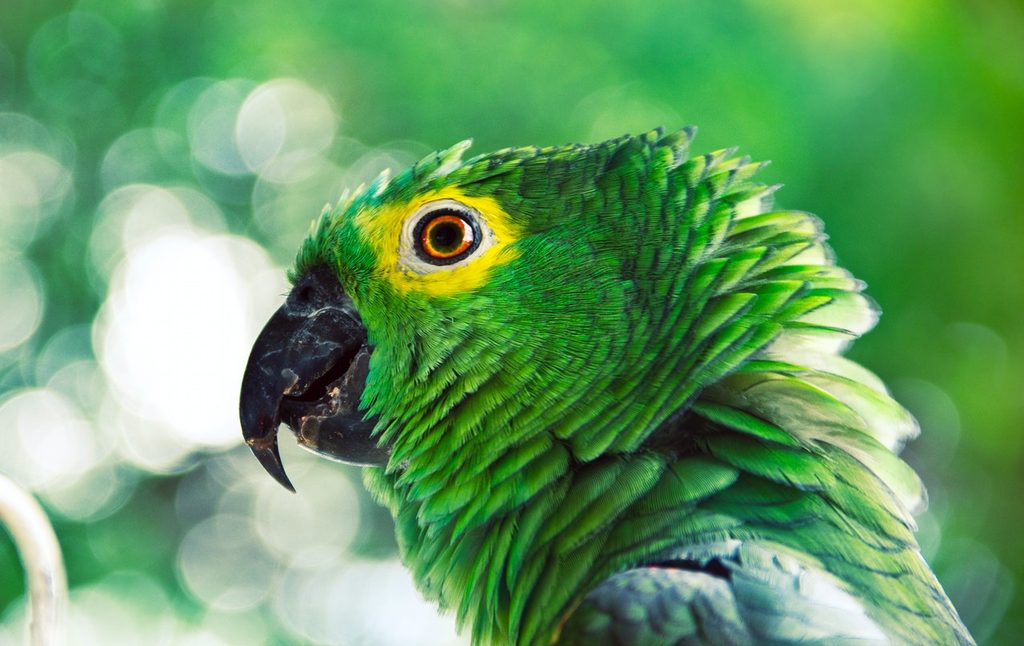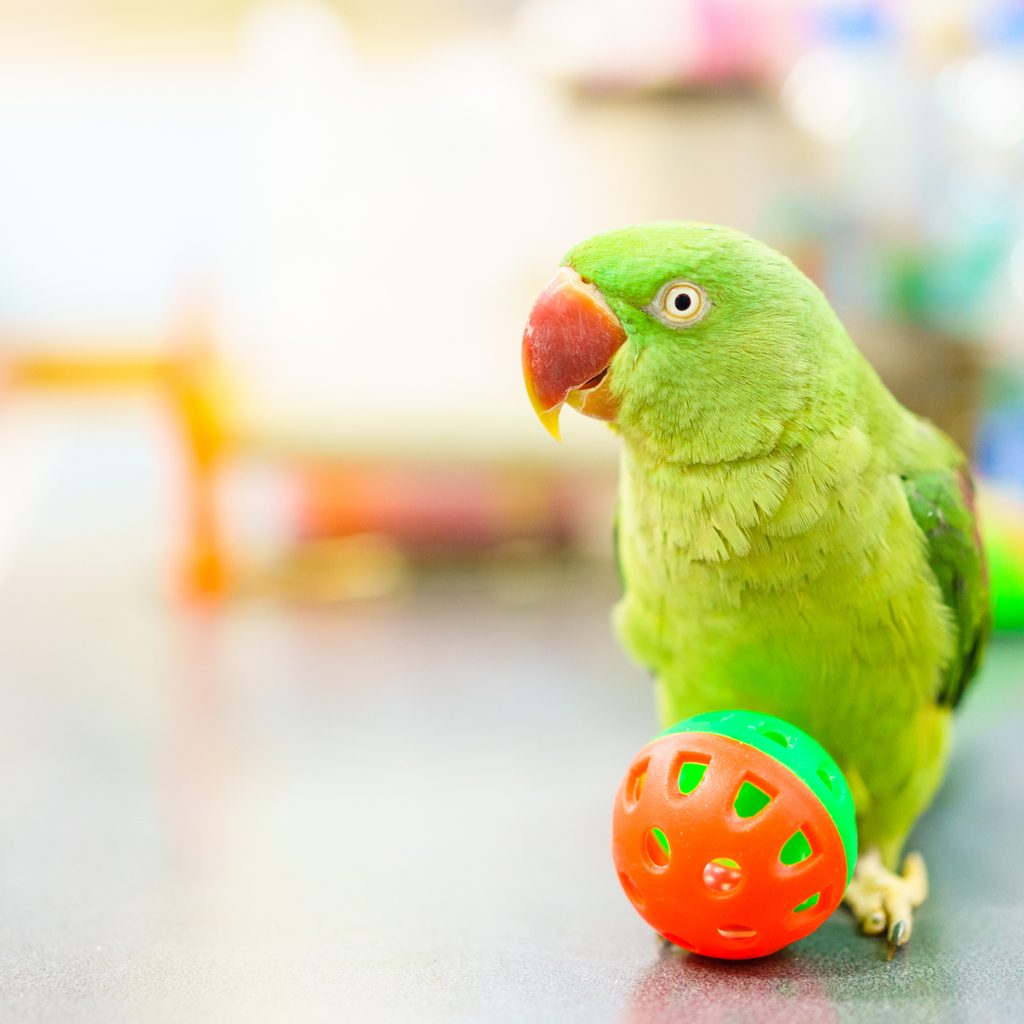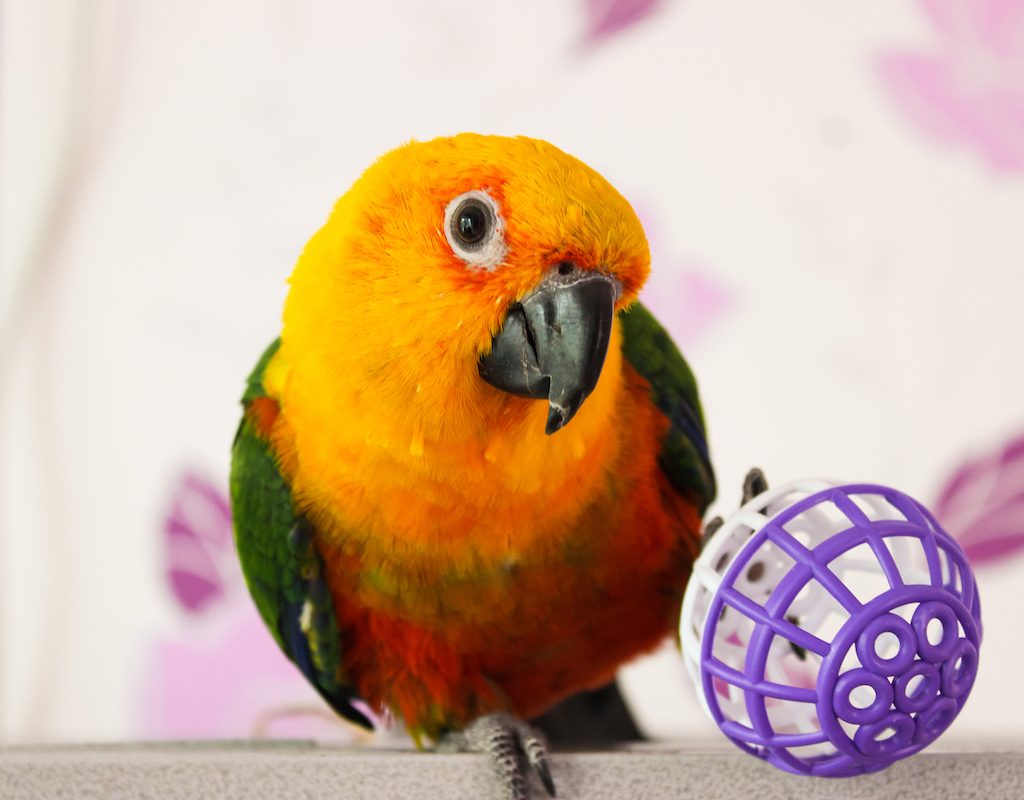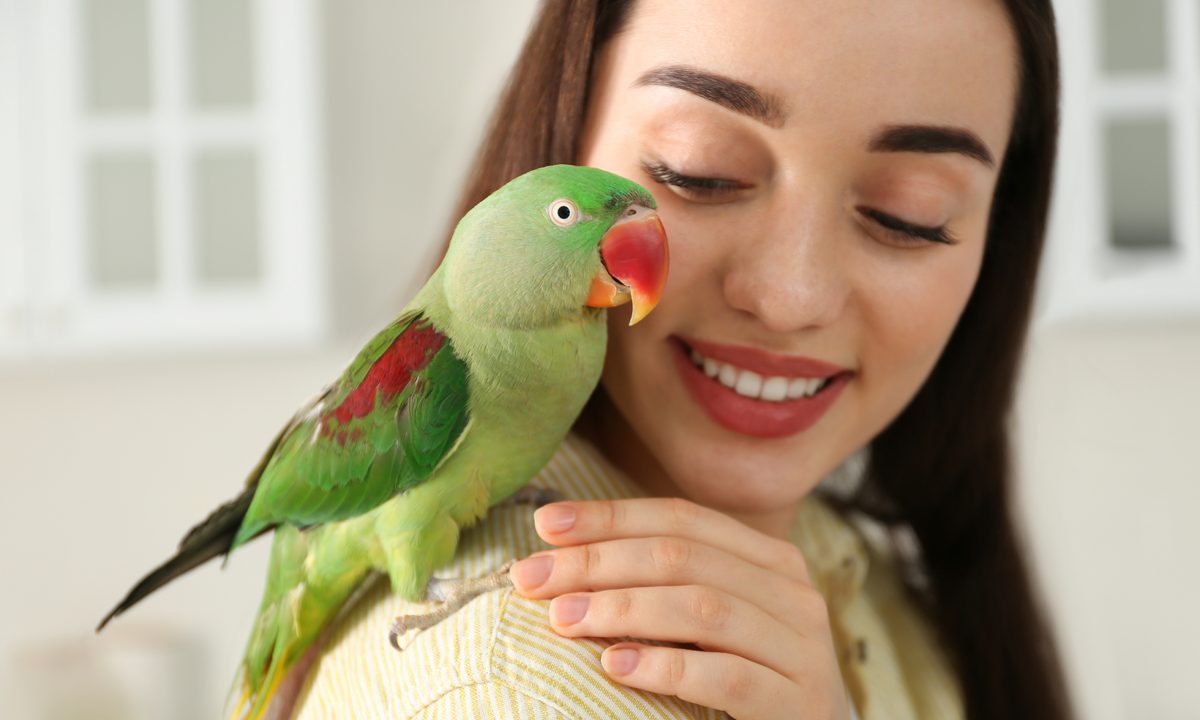When you bring home a pet, you make a commitment for life, but you don’t usually have to mean that literally. In the case of a few select animals, you might wind up with a friend who even outlives you. In particular, turtles/tortoises and parrots have some of the longest lifespans of common household pets. So, how long do parrots live? It depends a bit on the species, but you could have your feathered friend for 50 years!
Average parrot lifespan

When we say parrot, you probably conjure a specific image of a red or green bird with some colorful wings that can speak a few words, but there are more than 350 species that all fall under this umbrella. These include parakeets, budgies, cockatiels, cockatoos, macaws, and Amazon parrots. That’s a lot of options to choose from if your heart is set on a bird friend.
Unlike dogs, smaller birds have shorter lifespans — so your budgie won’t make it nearly as long as an African gray. Little guys will only get to about 10 or 15, but their larger cousins could even surpass five decades in rare instances. In the wild, parrots don’t generally make it there, because they don’t have you to keep them safe from predators. Don’t be surprised if you have to will your birdie to someone, though, because they become a septuagenarian.
Why do some parrots live longer?

Many of these birds come from tropical or subtropical habitats and live in trees. It’s your job to make your house imitate this environment as much as possible by providing ample exercise, nutritious food, and yearly checkups. Many parrots in captivity don’t get proper physical or mental stimulation and that can reduce their happiness and lifespan. You also want to ensure they don’t become obese, which can happen since your pet has you to feed them and they don’t have to fly around looking for food.
How to improve your parrot’s lifespan

Species and genes play a big role in this, but there’s a lot you can do to help your flier live a long and healthy life.
Good vet care
With a pet this complex, you’ll definitely need an expert to guide you along the journey. Make sure you research the right vet in advance, one who has experience with large birds.
Proper diet
It sounds odd to a bird novice, but your parrot shouldn’t eat many seeds. They need pellets that have been formulated to mimic their natural meals. On top of that, you can add seeds and nuts as snacks.
Lots of space
You want your animal to have a very large cage with room to fly, but many parrot owners also keep a space in the house for them to come out and explore safely. That means making sure they won’t eat anything harmful, get out of the house, or fly into ceiling fans and other hazards.
With the proper care, your pet bird could have an almost human-level lifespan. Because of this, we often recommend starting with a smaller bird if you don’t have the experience caring for one yet. Then when you graduate to an African gray, you’ll be prepared for the 50-year commitment.




